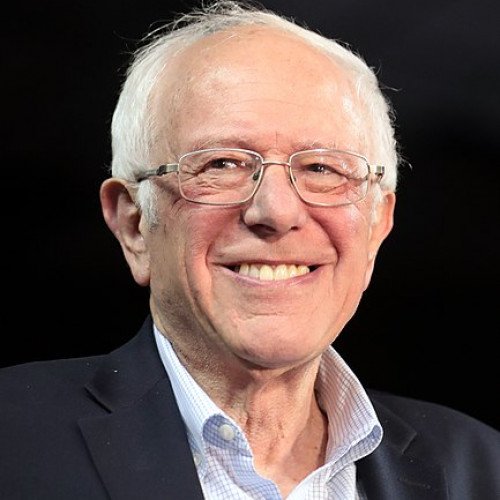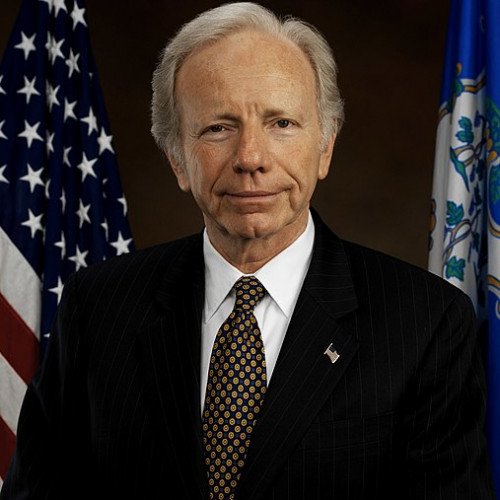Bernie Sanders VS Joe Lieberman

Bernie Sanders
Bernard Sanders (born September 8, 1941) is an American politician who has been the junior United States senator from Vermont since 2007 and as U.S. Representative for the state's at-large congressional district from 1991 to 2007. He is the longest-serving independent in U.S. congressional history, although he has a close relationship with the Democratic Party, having caucused with House and Senate Democrats for most of his congressional career. Sanders unsuccessfully sought the Democratic Party nomination for president of the United States in 2016 and 2020, finishing in second place in both campaigns. Before his election to Congress, he was mayor of Burlington, Vermont. An advocate of social democratic and progressive policies, Sanders is known for his opposition to economic inequality and neoliberalism. On domestic policy, he supports labor rights, universal and single-payer healthcare, paid parental leave, tuition-free tertiary education, and an ambitious Green New Deal to create jobs addressing climate change. On foreign policy, he supports reducing military spending, pursuing more diplomacy and international cooperation, and putting greater emphasis on labor rights and environmental concerns when negotiating international trade agreements. Sanders describes himself as a democratic socialist, supports workplace democracy, and has praised elements of the Nordic model. Some commentators have described his politics as aligned with the New Deal policies of President Franklin D. Roosevelt and left-wing populism. Sanders has been credited with influencing a leftward shift in the Democratic Party since his 2016 presidential campaign. Sanders was born into a working-class Jewish family and raised in the Brooklyn borough of New York City. He attended Brooklyn College before graduating from the University of Chicago in 1964. While a student, he was an active protest organizer for the Congress of Racial Equality as well as for the Student Nonviolent Coordinating Committee during the civil rights movement. After settling in Vermont in 1968, he ran unsuccessful third-party political campaigns in the early to mid-1970s. He was elected mayor of Burlington in 1981 as an independent and was reelected three times. He won election to the U.S. House of Representatives in 1990, representing Vermont's at-large congressional district, later co-founding the Congressional Progressive Caucus. He served as a U.S. Representative for 16 years before being elected to the U.S. Senate in 2006. Sanders was reelected to the Senate in 2012 and 2018. Sanders was a major candidate for the Democratic presidential nomination in 2016 and 2020. Despite initially low expectations, his 2016 campaign generated significant grassroots enthusiasm and funding from small-dollar donors, carrying Sanders to victory against eventual nominee Hillary Clinton in 23 primaries and caucuses before he conceded in July. In 2020, Sanders's strong showing in early primaries and caucuses briefly made him the front-runner in a historically large field of Democratic candidates. In April 2020, he conceded the nomination to Joe Biden, who had won a series of decisive victories as the field narrowed. Sanders endorsed Clinton and Biden in their general election campaigns against Donald Trump while continuing his efforts to move the Democratic Party in a more progressive direction.
Statistics for this Xoptio

Joe Lieberman
Joseph Isadore Lieberman (; born February 24, 1942) is an American politician, lobbyist and attorney who served as a United States Senator from Connecticut from 1989 to 2013. A former member of the Democratic Party, he was its nominee for Vice President of the United States in the 2000 election. During his final term in office he was officially listed as an independent Democrat and caucused with and chaired committees for the Democratic Party. Lieberman was elected as a "Reform Democrat" in 1970 to the Connecticut Senate, where he served three terms as Majority Leader. After an unsuccessful bid for the U.S. House of Representatives in 1980, he served as state Attorney General from 1983 to 1989. He narrowly defeated Republican incumbent Lowell Weicker in 1988 to win election to the U.S. Senate, and was re-elected in 1994, 2000, and 2006. He was the Democratic nominee for Vice President in the 2000 United States presidential election, running with presidential nominee and then Vice President Al Gore, and becoming the first Jewish candidate on a major American political party presidential ticket.In the 2000 presidential election, Gore and Lieberman won the popular vote by a margin of more than 500,000 votes, but lost the deciding Electoral College to the Republican George W. Bush/Dick Cheney ticket 271–266. He also unsuccessfully sought the Democratic nomination in the 2004 presidential election. During his Senate re-election bid in 2006, Lieberman lost the Democratic Party primary election, but won re-election in the general election as a third party candidate under the "Connecticut for Lieberman" party label. Never a member of that party, he remained a registered Democrat while he ran.Lieberman was officially listed in Senate records for the 110th and 111th Congresses as an Independent Democrat, and sat as part of the Senate Democratic Caucus. However, after his speech at the 2008 Republican National Convention in which he endorsed John McCain for president, he no longer attended Democratic Caucus leadership strategy meetings or policy lunches. On November 5, 2008, he met with Senate Majority Leader Harry Reid to discuss his future role with the Democratic Party. Ultimately, the Senate Democratic Caucus voted to allow him to keep the chairmanship of the Senate Committee on Homeland Security and Governmental Affairs. Subsequently, he announced that he would continue to caucus with the Democrats. Before the 2016 election, he endorsed Hillary Clinton for president. As Senator, Lieberman introduced and championed the Don't Ask, Don't Tell Repeal Act of 2010 and legislation that led to the creation of the Department of Homeland Security. During debate on the Affordable Care Act (ACA), as the crucial 60th vote needed to pass the legislation, his opposition to the public health insurance option was critical to its removal from the resulting bill signed by President Barack Obama.